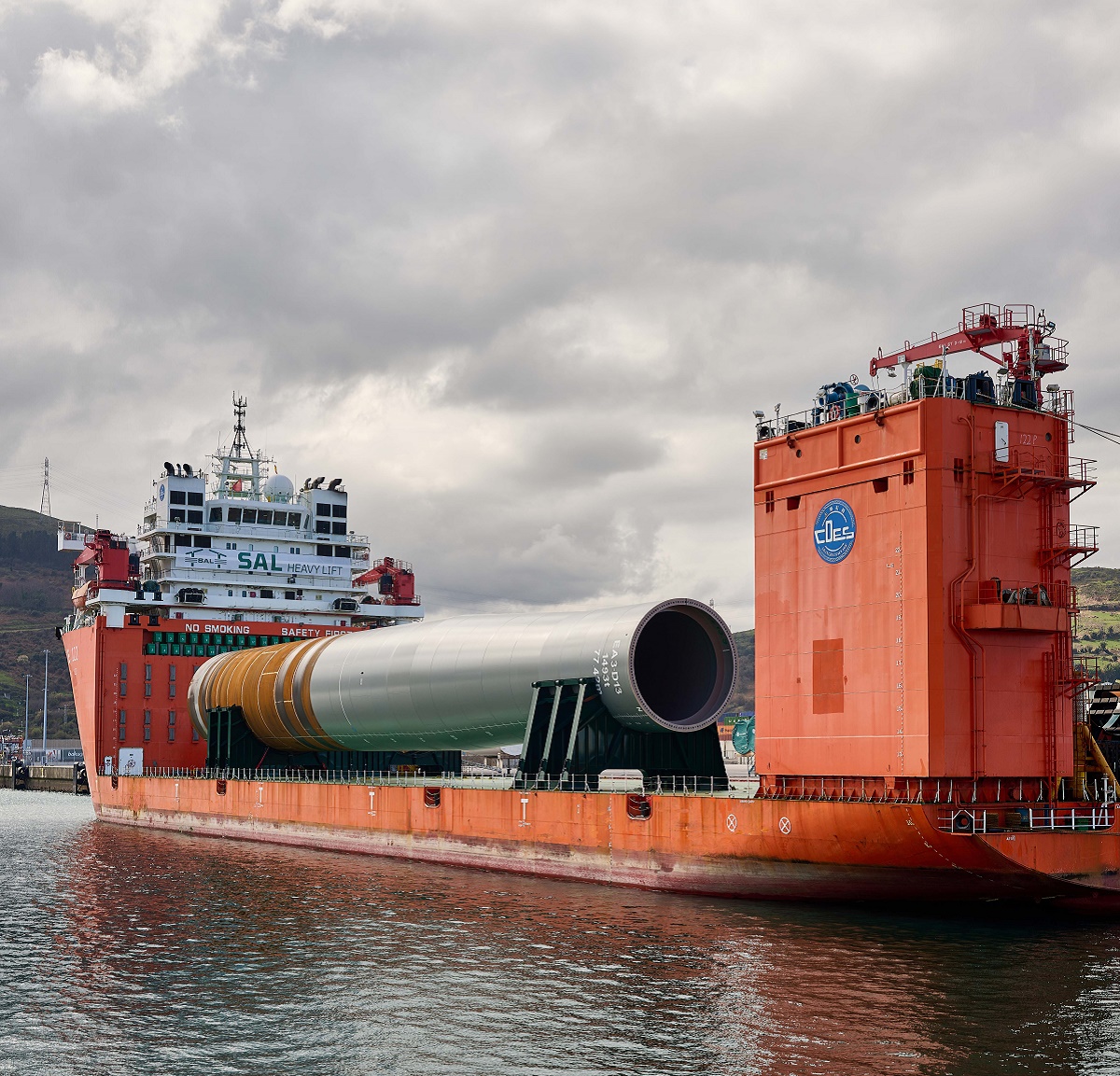From 13 to 15 May, the Bilbao Port Authority, UniportBilbao and more than 30 companies from the port logistics community will be in Rotterdam at the Breakbulk Europe trade fair, the world’s leading event for breakbulk, heavylift and project cargo.
At the fair, which will bring together more than 120 countries and thousands of professionals from the port and logistics sector, the modern facilities of the port, the versatility and capacity of all the port community companies and organisations, the shipping lines and services available and, in general, the wide-ranging multimodal offer of the Bilbao business community, will be showcased at Stand 1E25-F24.
Conventional general cargo (breakbulk) accounts for 10% of the traffic handled by the Port of Bilbao. Loading and unloading is carried out both with powerful cranes and equipment (lo-lo) and by means of ro-ro ramps.
In 2024, 3,454,776 tonnes of conventional goods were handled, up 15% on the previous year’s figures and mainly involving steel products, paper and pulp and all types of machinery. Stand-out markets include Belgium, which has already become the main market for this type of cargo due to the boost in road traffic, followed by the United Kingdom, Taiwan, Ireland, South Korea and India.
Special mention should be made of oversized/project cargoes and, within them, wind power components. In parallel with the strong growth of this traffic in the port’s hinterland, the port logistics community has prepared itself and specialised in this field, and is now a benchmark in this niche market for the transport, stevedoring, handling and lashing of wind turbine components such as nacelles, blades, bearings, hubs and towers. This is in addition to other large parts that also have a specialised service at the Port, such as boilers, coaches, train and metro carriages, propellers for ships and transformers.
Sustainable projects and the creation of new surface area
At the same time, Bilbao is a benchmark port in terms of sustainability, and projects focused on decarbonising the port are underway and growing. One such initiative is the electrification of the docks using OPS technology. The first phase of this project, which will require an investment of 4.7 million euros and has been awarded a grant of 3.9 million from the Recovery and Resilience Facility, is already underway, and will be completed at the beginning of 2026.
The second phase, which will start in 2025 and end in 2027, has a budget of 50.1 million euros and will be co-funded by the Connecting Europe Facility (CEF Funds – European Commission ) and by the Port Authority itself. In addition, a loan of 80 million euros has been secured with the European Investment Bank (EIB), part of which will be used to finance this project. Part of the energy to be consumed will come from renewable sources, such as an array of PV panels, the project for which has been put out to tender for 15.6 million euros.

The Port Authority is also investing 55.14 million euros in the second phase of the central breakwater, which will provide over 1,000 metres of new berthing line and increase the port’s operational surface area by some 310,000 m². The works began in the last quarter of 2024 and are due to be completed in 2027.
About the Port of Bilbao
The Port of Bilbao is a strategic hub in the Atlantic Corridor. As well as being a benchmark in renewable energies, the Port is a key multimodal logistics platform connecting Europe with the world, offering flexible solutions for complex cargo, including industrial projects, breakbulk and breakbulk cargo.
With more than 430 hectares of space and deep-water quays, the port is equipped to receive large vessels and heavy cargoes. It also has two dry ports, in Pancorbo and Arasur, which add an additional 57 hectares, further reinforcing its logistical reach in inland areas of the peninsula.
With sustainability, capacity and innovation amongst its defining features, the Port of Bilbao is where industry finds opportunity.

 Port access
Port access